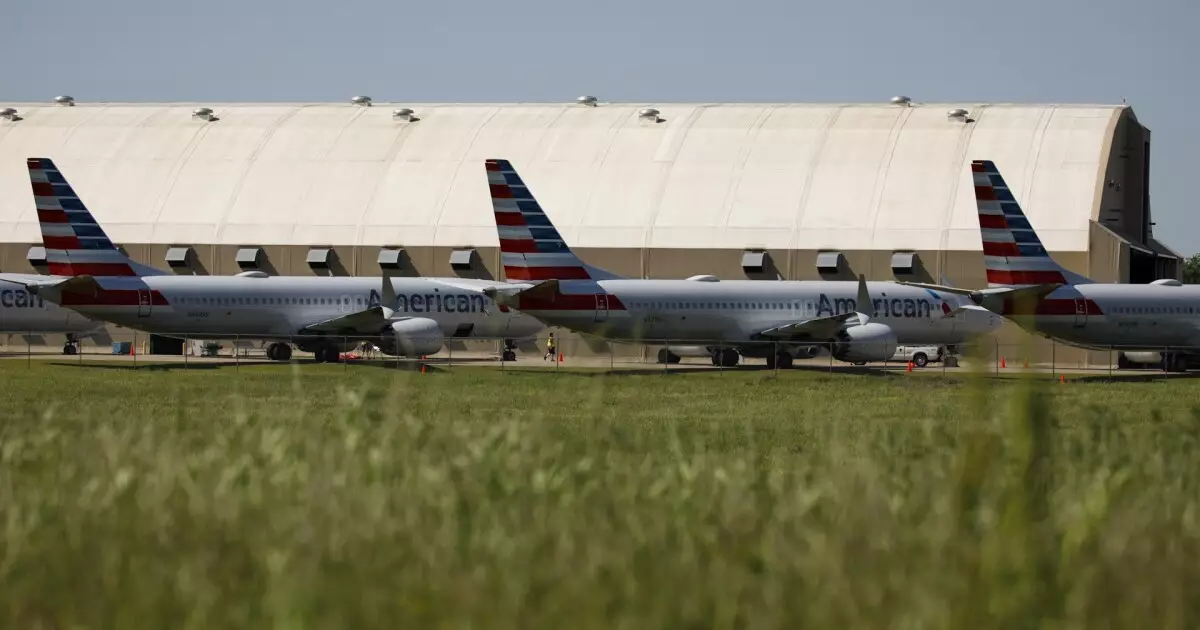7 Profound Insights: Understanding the Risks of Junk Bonds in American Airlines’ Tulsa Maintenance Facility

When one thinks of municipal bond issues, “junk” is not a word that typically evokes confidence or security. Yet, American Airlines is set to test the waters with a $350 million junk-rated special facility revenue bond issue aimed at funding upgrades to its substantial maintenance base in Tulsa, Oklahoma. This gamble involves financing a project estimated at over $400 million, raising pertinent questions about the risks and potential returns associated with such investment ventures in notoriously turbulent industries like aviation.
The commitment to issue bonds with a B-plus rating, from Fitch Ratings, reflects a delicate balancing act between securing funding and navigating a precarious financial landscape. While the rating is better than American Airlines’ general unsecured debt obligations, it still points to a significant risk factor—especially given the airline industry’s volatile nature. Investors must grapple with the reality that recovery values in the event of bankruptcy could be disappointing, leading to losses that become painfully pronounced.
The Hidden Costs of Ambitious Ventures
The proposed bond issue also doubles as a debt-refunding mechanism for $104.2 million of Series 2015 bonds. While on the surface, it appears to be a strategic execution of financial management, the underlying implications could be more challenging. Municipal finances often involve public trust; thus, leveraging taxpayer-backed revenue for risky ventures raises questions about accountability and prudence.
American Airlines is undoubtedly making a bold statement about its operational logistics in Tulsa, which is lauded as the world’s largest commercial aircraft maintenance base. However, with a workforce of about 5,000 relying on the facility’s continuous existence, the implications of financial turbulence could be catastrophic—not least for the individuals whose livelihoods hinge on the airline’s viability. What happens if the funding fails, or worse, if American opts to jettison its sublease during a downturn, leaving investors without recourse?
A Misguided Approach to Economic Recovery
In the aftermath of the pandemic-induced pandemonium, reliance on turbulent financial instruments like junk bonds seems increasingly misguided. The $22 million in incentives from Oklahoma’s Business Expansion Incentive Program, awarded to American Airlines for improvements at the facility, further complicates the issue. While these incentives offer short-term relief, the long-term reliance on taxpayer money to shore up private enterprise is economically unsustainable. It aggravates the conflict between public outlay and private profit, a dichotomy at the heart of modern economic woes.
This aligns with a broader trend of airports engaging in special facility bond issuances, like Houston’s $1.1 billion endeavor for United Airlines, aimed at terminal enhancement. While such moves illustrate government and corporate collaboration, the underlying risks cannot be overlooked. Are we setting a precedent for aviation giants to routinely resort to junk-rated bonds, shifting the economic burden onto taxpayers, without addressing systemic vulnerabilities in the airline industry itself?
The Unsettling Reality of Risk for Investors
Fitch’s report hints at a paradox: although the Tulsa maintenance base is critical for American Airlines’ daily operations, the value for creditors remains uncertain. If a bankruptcy were ever to loom large, creditors’ recovery prospects would fade quickly, making the bond structure appear less appealing. While the bondholders will have a leasehold mortgage on American’s sublease interest, the prospects for recovery remain bleak, particularly when competing against the bankruptcy court’s priorities.
Moreover, the provision stipulating that trustees pursue reletting options in the unfortunate event of lease rejection adds another layer of uncertainty. This simply emphasizes that potential bondholders are getting involved in a high-stakes poker game, with numerous chips on the table that may never yield returns.
Moving forward, it’s crucial for investors to exercise heightened scrutiny over such municipal bond offerings. Riding the coattails of companies like American Airlines might seem lucrative on paper, yet the underlying volatility makes this less a golden opportunity and more a siren call to a risky gamble. The financial landscape for airlines remains turbulent; those willing to wade into junk rated bonds must be fully aware of the storm brewing ahead.





